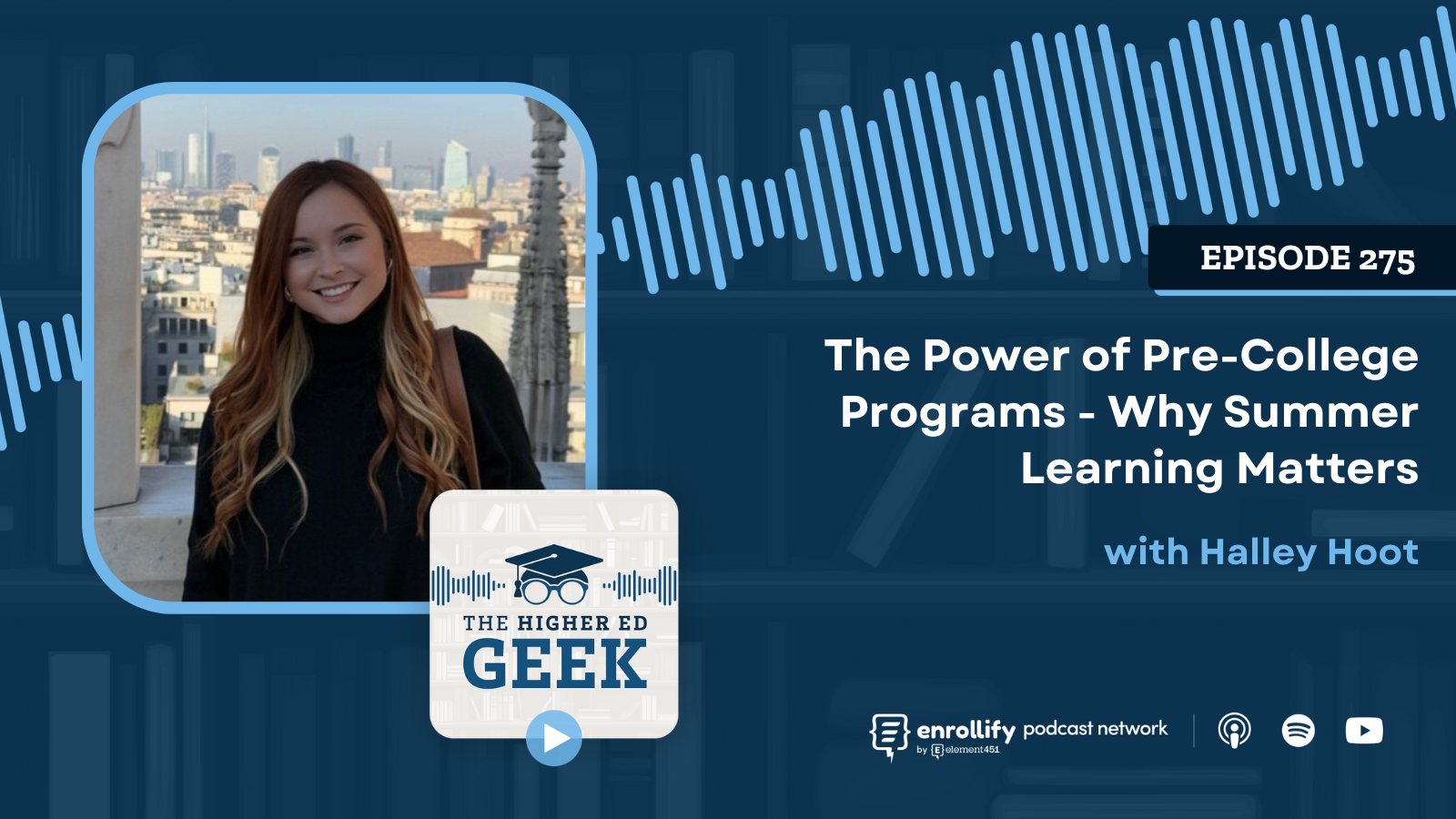About the Episode
About the Episode:
In this episode, Timothy and Jamie dive into the complex issue of financial and administrative holds in higher education. Sparked by a LinkedIn poll, they explore whether holds are a necessary tool for protecting institutions or a hindrance to student progress, especially for students from underrepresented groups. With research from Inside Higher Ed and insights from survey data, they discuss the disproportionate impact of holds on students of color, first-generation students, and those with learning disabilities. They also examine evolving policies and strategies that institutions are adopting to mitigate the negative effects of holds.
Key Takeaways:
- Institutional holds can prevent students from registering, accessing transcripts, or moving forward in their education due to various administrative or financial issues.
- Students of color, first-generation students, and students with learning disabilities are disproportionately affected by holds.
- Recent data suggests that 6.6 million learners are impacted by stranded credits, limiting their ability to transfer or re-enroll.
- Some institutions are shifting toward proactive support systems, offering students more guidance and resources before imposing holds.
Episode Summary
What are institutional holds in higher education?
Institutional holds are administrative barriers that colleges and universities place on student accounts for various reasons, such as unpaid fees, incomplete paperwork, or disciplinary actions. These holds can prevent students from registering for classes, obtaining transcripts, or continuing their education until the issue is resolved. As Jamie Boggs explains, holds can be triggered by anything from parking tickets to missing financial aid forms, making them a significant obstacle for many students.
How do holds impact student success, particularly among underrepresented groups?
Research has shown that institutional holds disproportionately affect students of color, first-generation students, and those with learning disabilities. For example, 29% of Black students and 24% of Latino students have reported being unable to register for classes due to holds, compared to 18% of white students. Additionally, 50% of first-generation students have faced registration issues because of holds. This creates an added barrier to student success, exacerbating existing challenges for these groups in higher education.
What role do financial holds play in stranded credits?
Financial holds often lead to the issue of stranded credits—credits that students have earned but cannot access because of unpaid balances. Timothy highlights a study revealing that 6.6 million students are affected by stranded credits, making it difficult for them to transfer to another institution or re-enroll. This creates a cascading effect, preventing students from completing their degrees or pursuing further education.
Are institutions rethinking their use of holds?
Yes, many institutions are shifting toward more proactive and supportive approaches. Rather than imposing holds without warning, some colleges are implementing better communication systems to notify students of outstanding issues before they become major roadblocks. As one commenter on LinkedIn mentioned, providing students with timely reminders and clear instructions about available financial resources can reduce the need for holds and help students manage their accounts more effectively. This shift underscores the importance of clear communication and a more student-centered approach to addressing administrative issues.
Links:
College Holds Disproportionately Affect Students of Color
Administrative Holds: Aiding or Preventing Student Persistence?
Connect With Our Co-Hosts:
About The Enrollify Podcast Network: The EduData Podcast is a part of the Enrollify Podcast Network. If you like this podcast, chances are you’ll like other Enrollify shows too!
Some of our favorites include Generation AI and The Higher Ed Geek.
Enrollify is produced by Element451 — the next-generation AI student engagement platform helping institutions create meaningful and personalized interactions with students. Learn more at element451.com.
Element451 is hosting the AI Engage Summit on Oct 29 and 30. Register now for this free, virtual event.The future of higher ed is being redefined by the transformative power of AI. The AI Engage Summit brings together higher ed leaders, innovators, and many of your favorite Enrollify creators to explore AI’s impact on student engagement, enrollment marketing, and institutional success.
Experience firsthand how AI is improving content personalization at scale, impacting strategic decision-making, and intuitively automating the mundane tasks that consume our time. The schedule is packed with real examples and case studies, so you leave knowing how to harness AI to drive meaningful change at your institution.
Whether you’re looking to enhance student outcomes, optimize enrollment marketing, or simply stay ahead of the curve, the AI Engage Summit is your gateway to the next level of higher education innovation. Registration is free, save your spot today.















